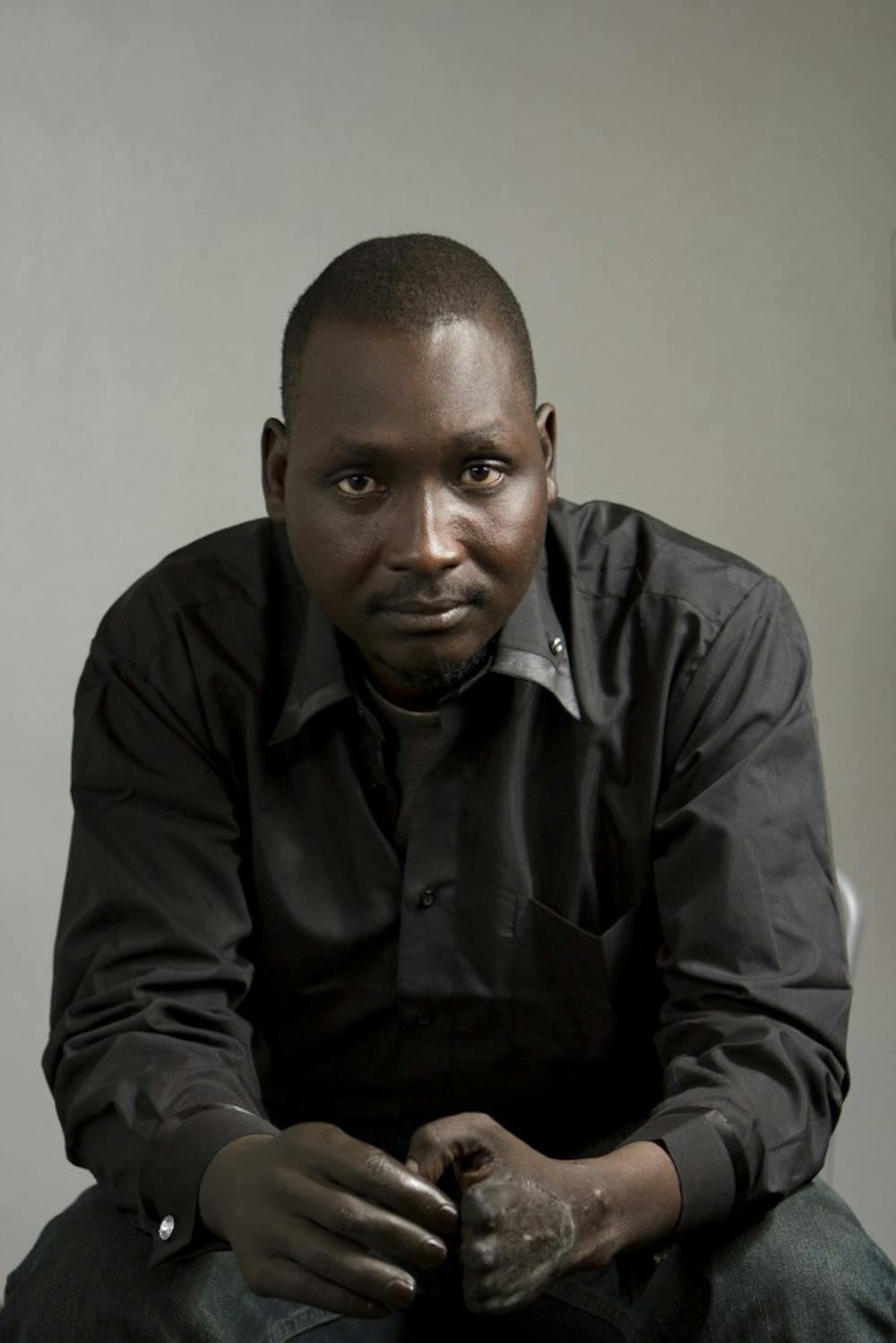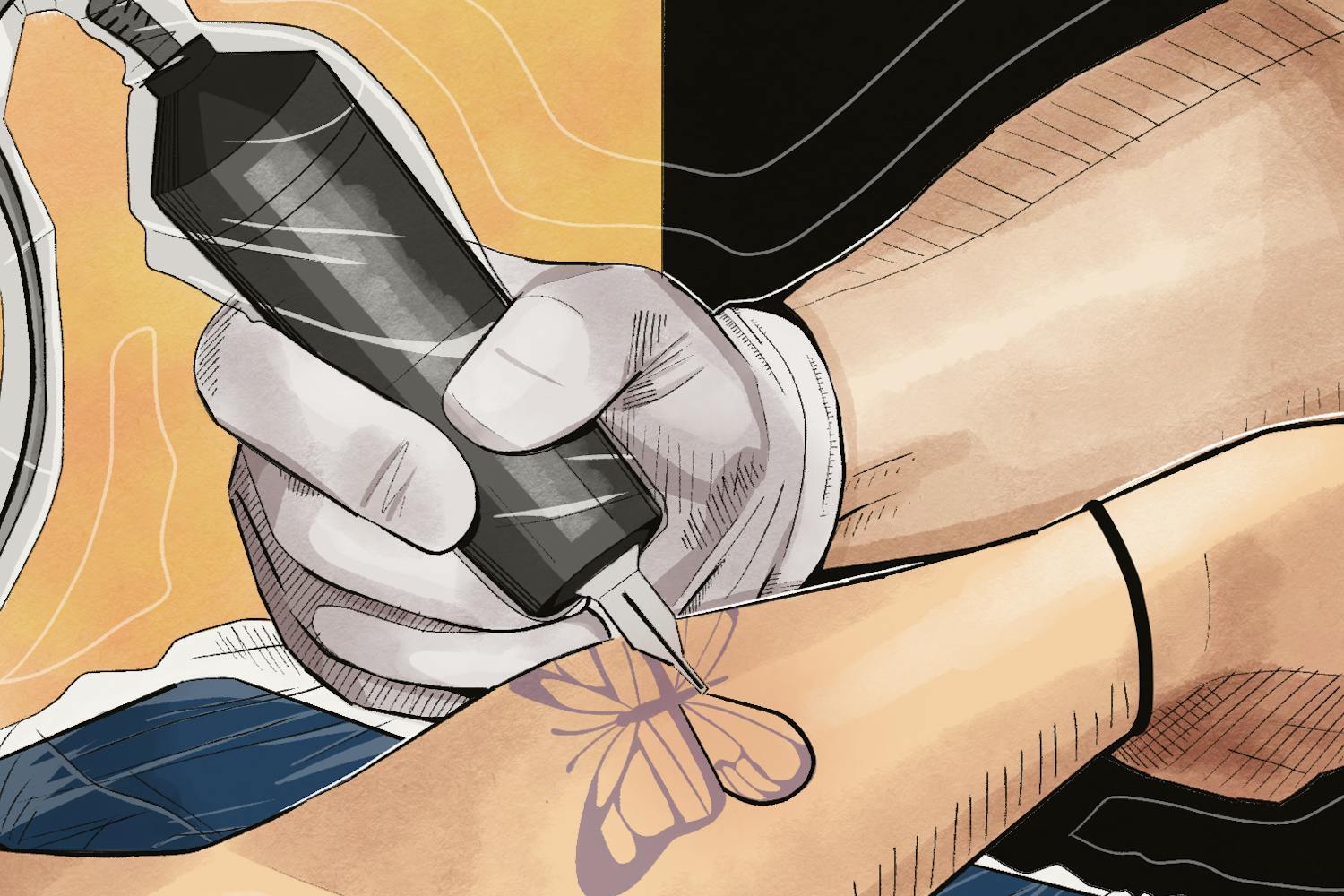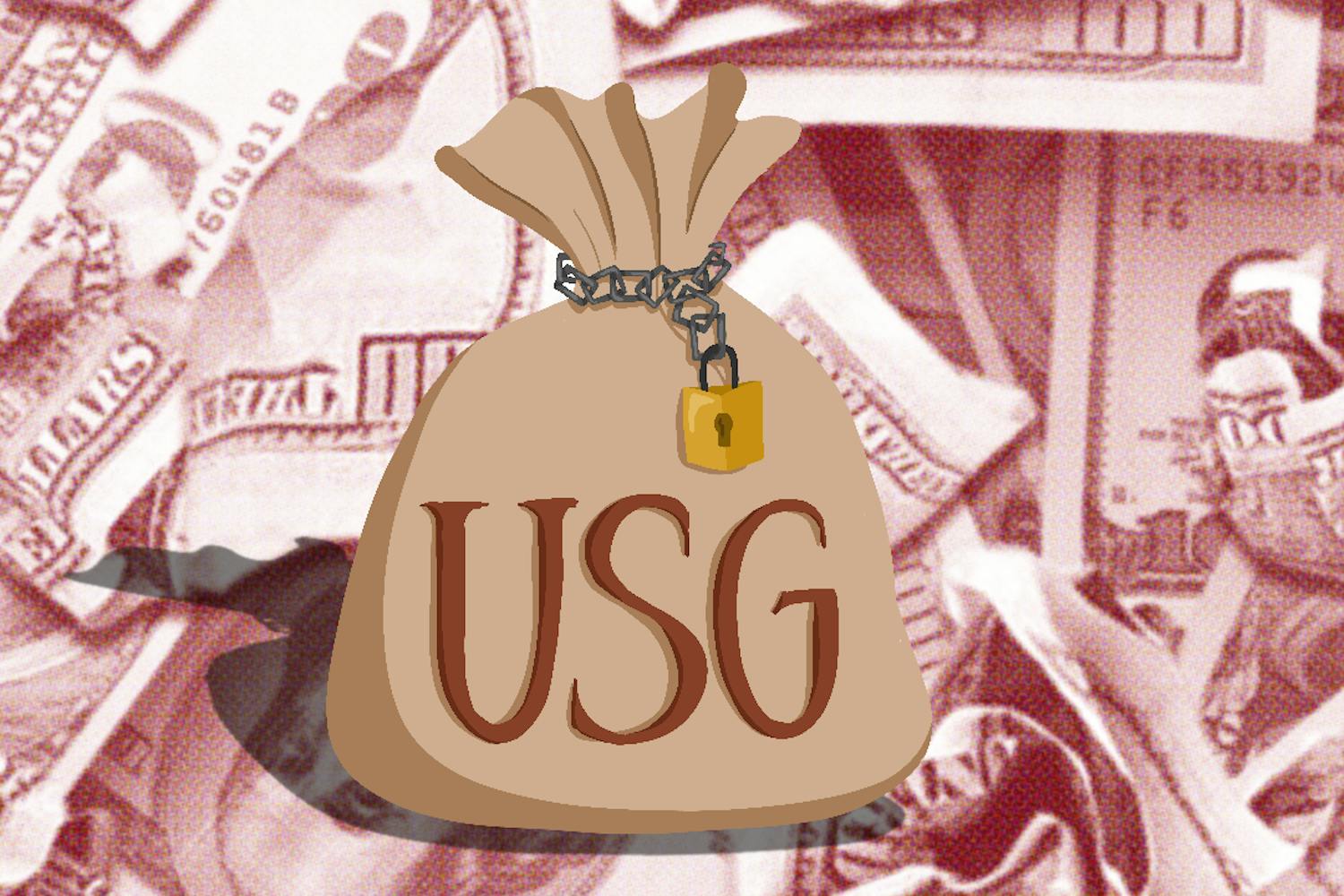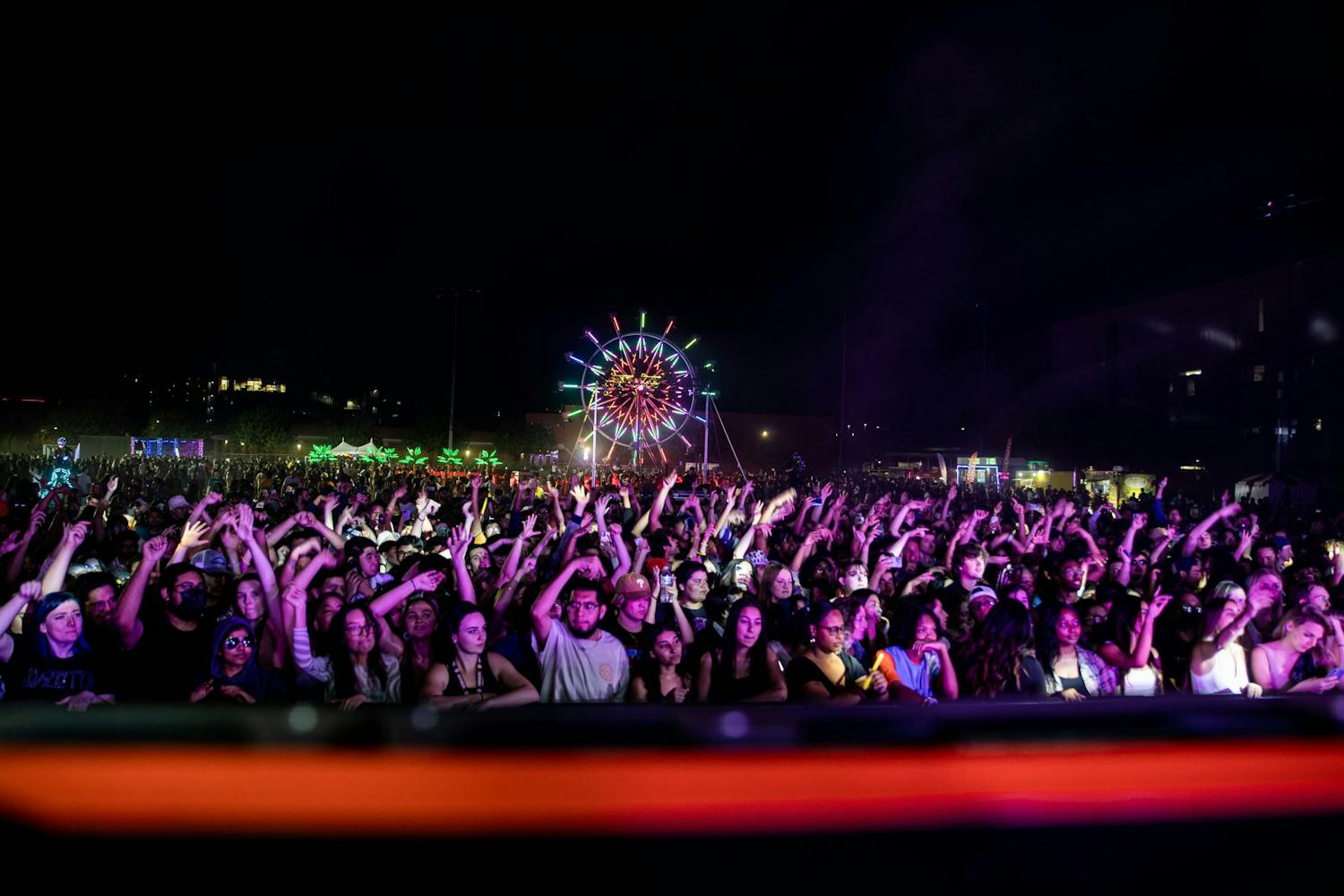Video by Sean Logan | Multimedia Reporter
In February 2000, after almost 10 years of traveling, William Mawwin was finally in the U.S.
Mawwin was born in Wau, a city in the northwestern part of what is now South Sudan, in a war-torn country. The Second Sudanese Civil War, which officially ended in 2005, resulted in the independent state of South Sudan and around 2 million casualties.
“I don’t know what my childhood is,” Mawwin said. “When I was 1, I got burned inside a house. When I was 6 years old, I got captured. “
Mawwin’s family home was burned down, because his father was part of the military. Although everyone made it out alive, Mawwin suffered serious burns on his back.
According to the nonprofit organization Anti-Slavery International, more than 14,000 men, women and children in Sudan were captured and forced into slavery between 1986 and 2002. Mawwin was one of them.
In 2002, the International Labour Organization estimated that there are more than 8 million children worldwide who have been forced into slavery or practices similar to slavery.
Free the Slaves, a nonprofit organization that campaigns against modern-day slavery, estimates there are 27 million people in slavery today.
Last May, Mawwin completed his associate’s degree at Scottsdale Community College. Now, he is an agribusiness junior at ASU.
“Sometimes I feel like I’m not alive on earth,” he said. “I feel like I am living a dream. Sometimes I feel like I don’t believe myself that I’m in America. I feel like I’m still sleeping and dreaming about my life.”
Life in Captivity
 Business junior William Mawwin poses for the camera. Mawwin was born in war-torn Sudan and was brought into slavery when he was 6 years old. (Photo by Andrew Ybanez)
Business junior William Mawwin poses for the camera. Mawwin was born in war-torn Sudan and was brought into slavery when he was 6 years old. (Photo by Andrew Ybanez)While he was captured, Mawwin took care of the cattle, cleaned houses and milked cows.
“You do whatever they tell you to do,” he said. “The only thing I remember is where I was at. The life you have when you’re captured, it’s not the life that you really feel like you are (a) human being."
Before being forced into slavery, Mawwin lived with his grandmother. He said she is one of the few memories he has of that time.
Children are the most common target to become slaves, Mawwin said, because teenagers and adults are more likely to escape.
“We was a lot,” he said. “We was a lot of people. The majority of us were a lot of children.”
Although barely 6, Mawwin had to quickly learn how to be an adult. His strategy soon became detachment from the reality that surrounded him.
Some days, Mawwin said, he was no longer afraid of dying.
“I don’t see myself crying anymore,” he said. “There’s nothing that makes me cry anymore. I saw people getting killed. I saw people die. I saw people slaughtered. If the day comes when they say we are going to shoot you, then you be happy.”
With bloodshot eyes and a quivering voice, Mawwin said the most difficult memory he has of the time is of a little boy, whose name he can’t recall, sitting down after being shot and awaiting his death.
That memory is the first thing that comes to mind every time someone asks him to share his story, Mawwin said.
“When he saw his mom and his sister get raped, he got shot,” he said. “He looked at me and smiled. I didn’t know him that much. I didn't know how to help him.”
Mawwin was captured from 1985 to 1991. He was 12 when he finally escaped. It was wintertime.
After Mawwin finally escaped captivity, he planned to look for his grandmother but did not know where he was and had no idea how to find her. Instead, he ended up in Cairo.
There, Mawwin lost his right hand and most of his left fingers after an accident while he operated unfamiliar machinery. Today, he uses a prosthetic hand that closely resembles the color of his skin and is able to drive and use a smartphone with only his left palm and thumb.
Following the accident, Mawwin decided to get help from the U.N., which completed his paperwork to become a refugee in America.
According to the World Refugee Survey of 2009, the U.S. accepts up to 80,000 refugees annually.
“I didn’t even know that the world was bigger,” Mawwin said. “I thought it was just my village. “
A new family
Five years after Mawwin arrived in the U.S., he sat under a tree in the backyard of a house where a fundraiser for the Lost Boys Center was taking place. The house belonged to ASU English professor Melissa Pritchard, or as Mawwin now knows her, “Mom.”The two were not formally introduced until a year later at a different fundraiser. Then, Pritchard and Mawwin, along with local filmmaker Ed Ashhurst, decided to come together to tell his story.
“That’s when I first started to hear William’s story and he opened up to us,” Pritchard said. “And he told us things he never told anyone. He felt safe with us.”
Pritchard’s interest in Sudan began two years before when she wrote a story for MetroAZ magazine about the center.
“When I heard his story it was like nothing I’ve ever had before,” she said. “The depths of suffering, the fact that he survived all of this, still to this day amazes me.”
It took Pritchard five years to begin writing Mawwin’s story. The process began in spring 2012, when Mawwin visited Pritchard every day for two or three weeks and together they revisited his story since birth.
In October, Pritchard began writing. The final product, an essay titled “Still, God helps you,” was published in the summer 2013 edition of the Wilson Quarterly.
“I promised him I would write his story, and it took me five years to keep my promise,” she said. “I think I was intimidated. Could I tell it? Was I up to it? Finally, last spring, one day I woke up and said, ‘Oh, it’s time.'”
During those weeks, the duo became even closer, Pritchard said.
To help Mawwin open up, Pritchard said she tried to show almost no emotions or reactions to his story, as she didn’t want him to get upset.
“Sometimes he would cry, but he would always leave with a spring in his step, like he had released something,” she said.
The first time Mawwin called Pritchard “Mom,” they were traveling to Los Angeles with Ashhurst. She said she did not know what to think at the time.
“I remember feeling kind of uncomfortable,” she said. “I hesitated. At some point last summer, when he came over and every day, and he opened up to me more than he ever had, and I had such pride in him. I realized ‘God! He is my son.’”
This summer, Mawwin traveled to Sudan to visit his family. While on his way back, he got delayed in Egypt because of the civil unrest.
“I couldn’t contact him, and I got really really worried, and I was just calling everybody saying, ‘Where’s William?’” she said. “I couldn’t sleep. I was so worried.”
Mawwin made it home safe, bearing gifts that his sisters and mother made for Pritchard.
At the time they met, Mawwin found it very difficult to trust people. Pritchard changed that, he said.
“When I grew up, I didn't grow up with a lot of family,” he said. “I made it on my own.“
The day after Mawwin called her “Mom,” she invited him to spend Thanksgiving with her and her family. There, he met Pritchard’s daughters.
It was the start of the new family.
“From that moment on, we just became a lot more closer than a mom and a son,” he said.
It took her daughters a while to consider Mawwin their brother, but now Pritchard said they are very close.
“Whenever they’ve had problems in their lives, he was just there,” she said. “He was right there even though he didn’t have a car. He told me once that in the early days he used to drive past my house sometimes to make sure I was all right.”
Caty, Pritchard’s daughter, said she admires Mawwin so much, as he is a great example of overcoming obstacles.
When she first met him, Caty said she was not surprised as her mother constantly welcomes people into her home.
“My sister and I used to roll our eyes at our mom,” she said. “But William always seemed really happy and like he was appreciative of the fact that we were welcoming him into our family. “
One time, when Caty was not answering her phone and her family was worried about her, Mawwin went over to her house to make sure she was safe.
“We just talked for hours at the kitchen table,” she said. “He really does feel like my brother.”
Caty said the first time she heard about Mawwin’s past she found it hard to believe, given the optimistic way he leads his life.
“He impresses me all the time,” she said. “I love him so much.”
Looking ahead
After almost 10 years of work, Ashhurst and his brother Carlos, are almost ready to enter Mawwin’s story to film festivals.The brothers traveled to Sudan on three different occasions as research for the documentary titled "The Promise."
Filming began in 2009.
“Slavery was the one issue we really wanted to tackle, and to see if we could find a solution for it,” Ashhurst said.
As soon as he met Mawwin, Ashhurst said he knew he wanted to share his story with the world.
“To someone who has never met William, I would say, ‘Be prepared to be amazed,’” he said. “He’s just such a compassionate individual. Looking at him you would never guess what he’s been through, because he’s just so positive.”
Ashhurst said he believes Mawwin might one day end modern-day slavery.
Pritchard agrees.
“I have a secret dream that he’s going to go back to Sudan and be a leader of his people,” she said. “I don’t know in what capacity, but I know he’s going to do something great. I just know it.”
Mawwin said he is not sure what the future holds for him. Before coming to the U.S., he said he never expected to end up as a university student.
After community college, Mawwin applied and was accepted into NAU, New Mexico State and Howard University in Washington.
Pritchard worked really hard to convince him to enroll at ASU, he said.
In February, Mawwin attended an alumni event where Pritchard was receiving an award. During the ceremony, ASU President Michael Crow told the audience that regardless of class or origin, everyone had a place at the University.
Following that, Mawwin decided that ASU was the best fit for him.
“I told (Pritchard), ‘Hey Mom, I made up my mind, and I’m going to be a Sun Devil,’” he said. “She was so happy!”
Now, Mawwin said he is not sure about what he would like to do after graduation.
“I don’t even plan for the five or 10 years,” he said. “I just think about tomorrow and whether I’m going to wake up alive.”
Reach the reporter at dpbaltaz@asu.edu or follow her on Twitter @dpalomabp




